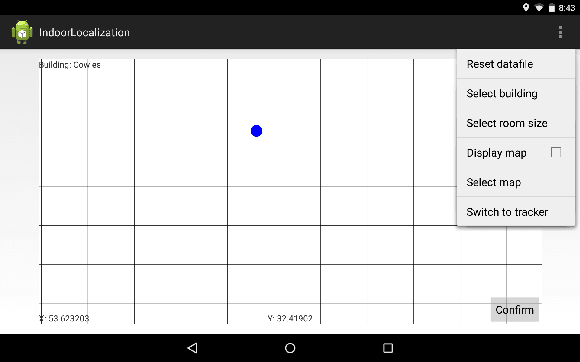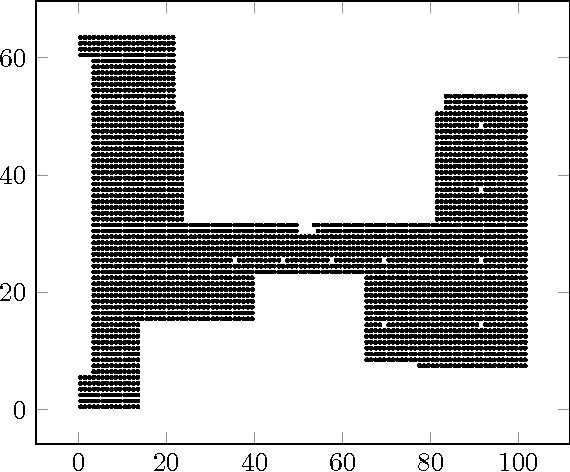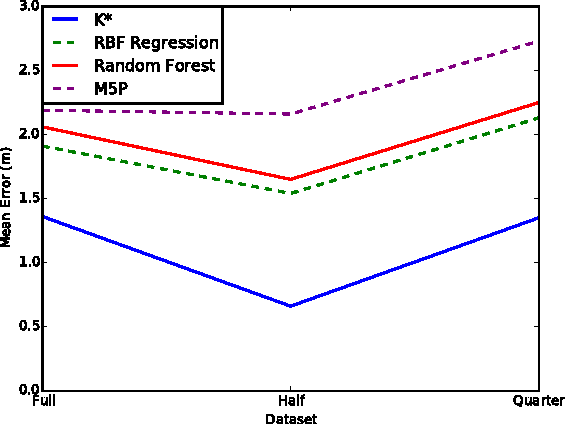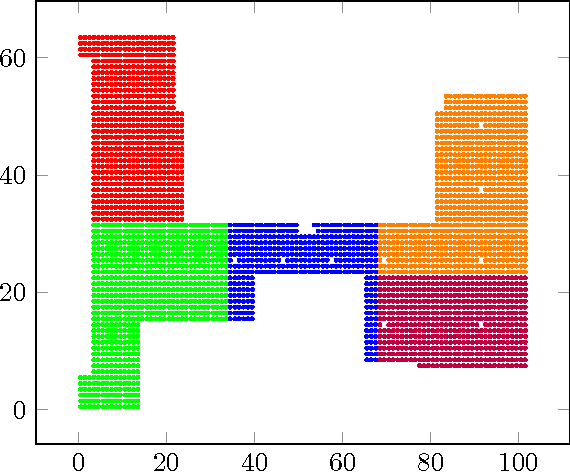Machine Learning for Indoor Localization Using Mobile Phone-Based Sensors
Paper and Code
May 22, 2015



In this paper we investigate the problem of localizing a mobile device based on readings from its embedded sensors utilizing machine learning methodologies. We consider a real-world environment, collect a large dataset of 3110 datapoints, and examine the performance of a substantial number of machine learning algorithms in localizing a mobile device. We have found algorithms that give a mean error as accurate as 0.76 meters, outperforming other indoor localization systems reported in the literature. We also propose a hybrid instance-based approach that results in a speed increase by a factor of ten with no loss of accuracy in a live deployment over standard instance-based methods, allowing for fast and accurate localization. Further, we determine how smaller datasets collected with less density affect accuracy of localization, important for use in real-world environments. Finally, we demonstrate that these approaches are appropriate for real-world deployment by evaluating their performance in an online, in-motion experiment.
 Add to Chrome
Add to Chrome Add to Firefox
Add to Firefox Add to Edge
Add to Edge